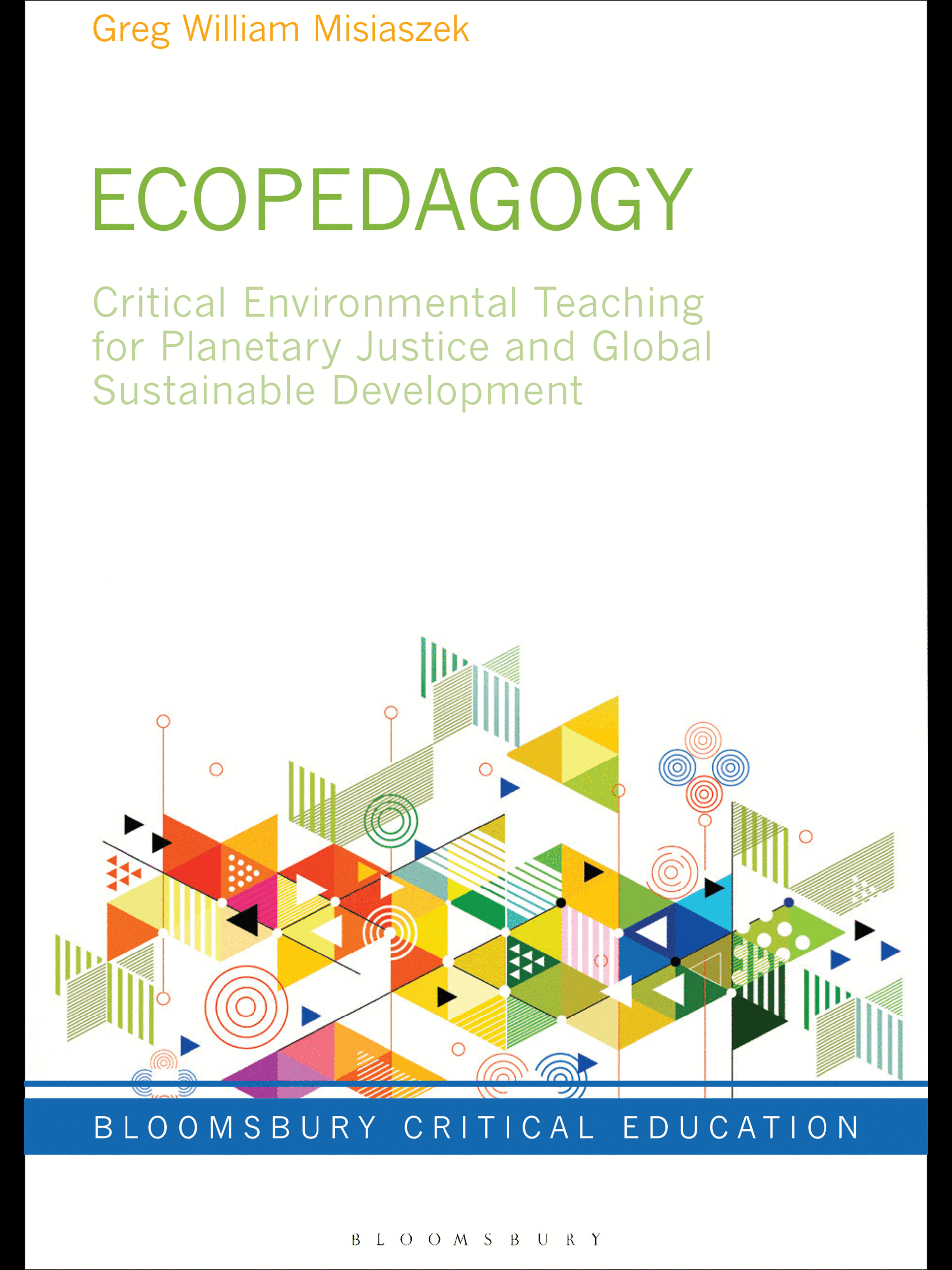Ecopedagogy is critical, transformative education for praxis that aims at ending socio-environmental injustices and the human dominance of Nature, countering teaching that separates social and environmental violence, and distances us, as humans, from the rest of nature. Plural in definition, I argue, with others, the concept of ecopedagogies emerged from Paulo Freire’s work on popular education, both from his later work directly, and from Freireans’ reinventions. Freire, as a literacy educator, argued that education should teach students to read the world critically. Ecopedagogy widens that reading to all of the Earth, with the world (the anthropocentric sphere) as part of Earth (the planetary sphere), thus developing in students an ecopedagogical literacy. Environmental teaching too frequently relies on ‘banking’ models that are non-dialectic, non-democratic, non-contextual and non-critical, leading to understanding and problem-solving that is superficial. Without education that reads critically for the actual roots of environmental ills, their causes remain unknown, and effective problem-solving, impossible.
Ecopedagogical literacy nurtures the kind of deepened and widened understanding for action that can emerge from critical theorising (i.e., praxis), rather than environmental pedagogies that centre on quantitative environmental knowledge. Ecopedagogues teach students to deconstruct and thus unlearn ideological ‘reasoning’ that produces unsustainable environmental violence done for some populations’ benefit (e.g., for electricity or fuel). Ecopedagogical work problematises ‘who’ benefits and ‘who’ suffers from such violence, and the politics of an education that hides its oppressive effects on populations, the inherent connections between environmental and social violence, and its devaluing of the non-anthropocentric sphere. Teaching ecopedagogical literacy can provide students with the tools to read the politics of socio-environmental issues critically through diverse socio-historical lenses that are local-to-global-to-planetary in perspective and allow for continuous reflection on our positionality and the limitations of world-Earth ‘knowing.’ It enables students to reading how socio-historical oppressions (e.g., coloniality, racism, patriarchy, neoliberalism, globalisations from above, non-/citizenship, epistemicide from epistemologies of the North, heteronormativity) create, sustain and/or intensify socio-environmental ills.
Much of my work utilises the term distancing, by which I mean that environmental teaching often falsely distances (e.g., geopolitically, othering, timewise, anthropocentrically) environmental violence from social injustices and the world from the rest of the Earth. Ecopedagogical work is inherently world-Earth de-distancing. For example, de-distancing is essential when discussing education for development with and without sustainability (ESD). Ecopedagogical reading aims to pinpoint, analyse and then disrupt environmental violence for Development masked as development (with an upper-case D to signify dominance and hegemony, and a lower-case d as the opposite), with perverts environmental teaching. This is important because ESD is increasingly touted fatalistically as neoliberal esD without alternatives.
Ecopedagogies must address a number of challenges today. First, they must problematise dominant epistemologies of the North (à la Boaventura de Sousa Santos) in which socio-environmental ‘knowledges’ are grounded upon socio-historical oppressions. Second, they must counter the post-truthism that claims that environmental ills can be mended politically. Lastly, they must reinvent the contested terrain of citizenships (i.e., local-to-national-to-global-to-planetary spheres) to enable human beings to move from othering the Earth to solidarity between the world and the Earth.





